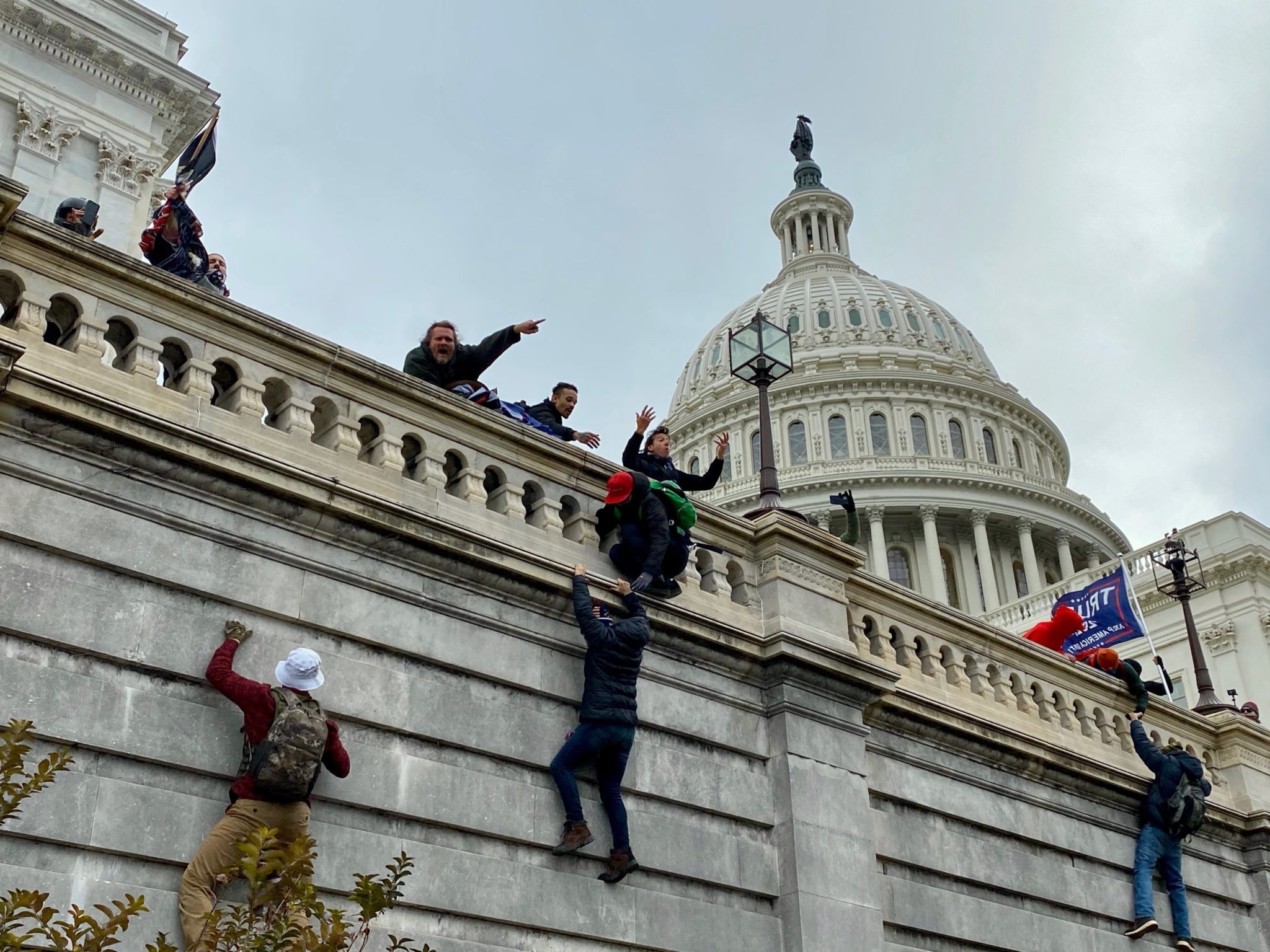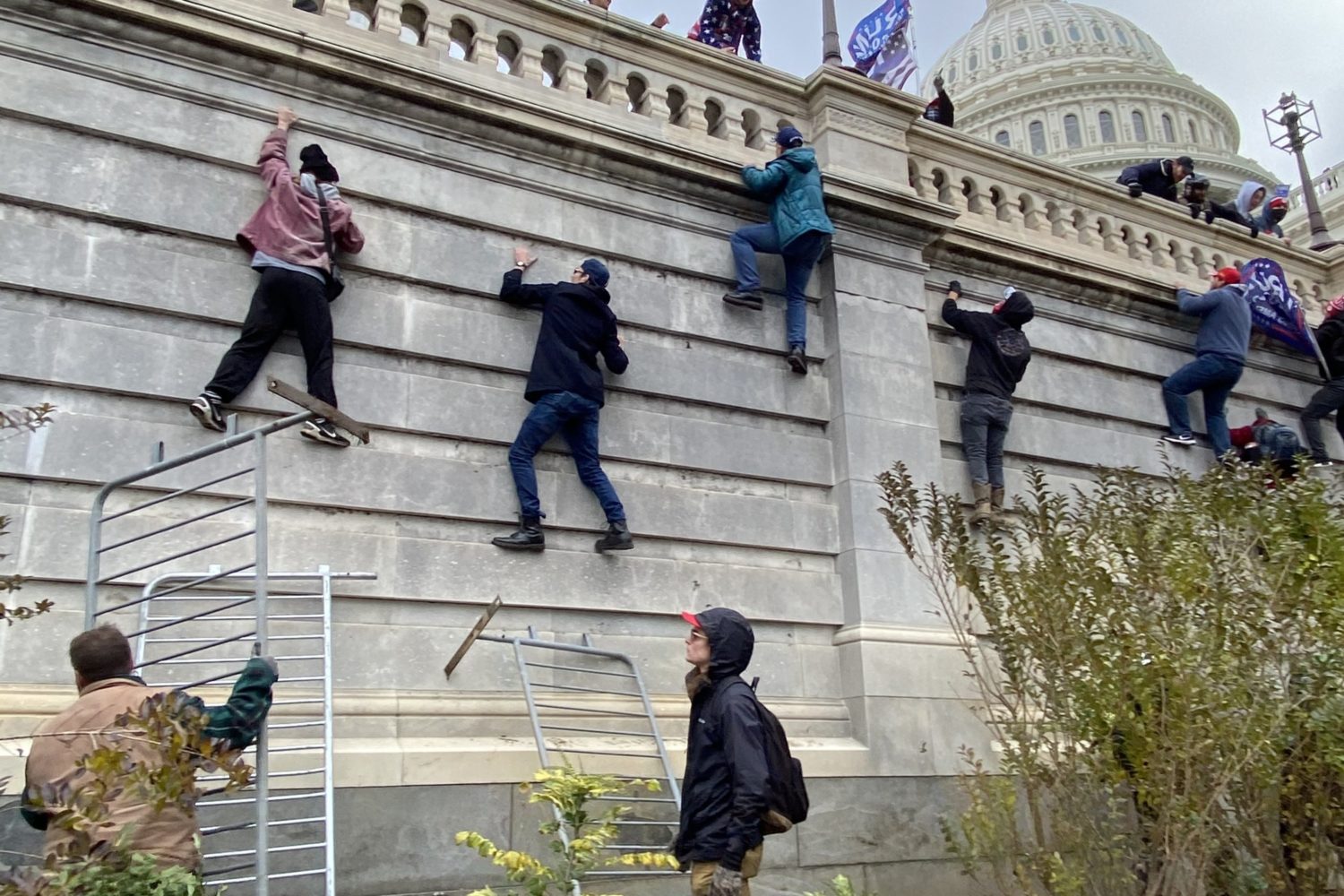As a tense Washington locks down in preparation for tomorrow’s inauguration of President-elect Joe Biden, we’re continuing to lear more about the violent insurrection attempt that rocked the nation’s capital on January 6. Here’s the latest new revelations on the days leading up to the attack, the effort to bring the perpetrators to justice, and the fallout in Congress.
National Guard Request turned down due to optics concerns
The Washington Post reported Monday that Paul Irving, the Sergeant-at-Arms for the House of Representatives, didn’t act on a suggestion from the chief of the Capitol Police—two days prior to the attack on the U.S. Capitol— that he activate the national guard because he believed Congressional leaders would deny the request on account of how it would look. “The term ‘optics’ is not an unusual term up there on the Hill,” former Senate sergeant-at-arms Bill Pickle, speaking at the request of Irving, told The Post. “He understands how the members think. He understands optics is everything to a politician.” When making the decision not to activate the National Guard, Irving didn’t check with House Speaker Nancy Pelosi, who was his superior until he resigned on January 11, “but thought he was reflecting her likely response,” according to The Post’s reporting.
Sergeant-at-Arms dismissed early warning that Congress could be targeted
Three days before the attack on the U.S. Capitol, the Capitol Police generated a report warning that furious Trump supporters might direct violence at members of Congress, The Post reported late Friday. “Supporters of the current president see January 6, 2021, as the last opportunity to overturn the results of the presidential election,” according to the report. “This sense of desperation and disappointment may lead to more of an incentive to become violent. Unlike previous post-election protests, the targets of the pro-Trump supporters are not necessarily the counter-protesters as they were previously, but rather Congress itself is the target on the 6th.” The Post subsequently reported that while then-House Sergeant-at-Arms Paul Irving read this report prior to the attack, he considered it similar to other warnings issued prior to earlier protests. “Irving was comfortable with the roughly 1,400 police officers on duty guarding the building and 125 Guard members who Sund said he had been told could be available quickly if necessary,” The Post reported.
Nancy Pelosi’s stolen laptop made have been headed to Russia
A Pennsylvania woman, who may have swiped a laptop from Nancy Pelosi’s office, was arrested Monday on charges stemming from the January 6 attack on the Capitol, NPR reports. The FBI is now looking into whether Riley June Williams had plans to send the Pelosi’s computer or hard drive to Vladimir Putin. NPR reports that an ex lover of Williams’s has alleged, according to her arrest warrant, that Williams “intended to send the computer device to a friend in Russia, who then planned to sell the device to SVR, Russia’s foreign intelligence service.”
House committee chairs demand briefings on security failures
The chairs of four House committees signed a letter sent to the FBI’s director Saturday requesting information—in the form of documents and briefings—on the security and intelligence lapses that paved the way for the January 6 attack on the Capitol, CNBC reports. “This still-emerging story is one of astounding bravery by some U.S. Capitol Police and other officers; of staggering treachery by violent criminals; and of apparent and high-level failures — in particular, with respect to intelligence and security preparedness,” the lawmakers said in their letter. According to CNBC, the letter was signed by Mississippi Democrat Bennie Thompson, who chairs the House Homeland Security Committee; California Democrat Adam Schiff, who chairs the House Intelligence Committee; New York Democrat Carolyn Maloney, who chairs the House Oversight Committee; and New York Democrat Jerry Nadler, who chairs the House Judiciary Committee.


![Luke 008[2]-1 - Washingtonian](https://www.washingtonian.com/wp-content/uploads/2017/10/Luke-0082-1-e1509126354184.jpg)

















